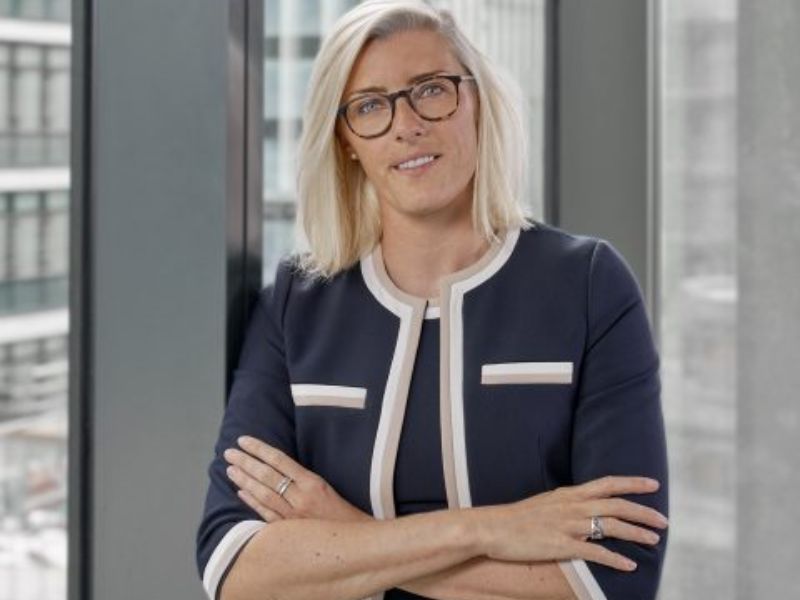Linda is the CEO of Immodulon Therapeutics. Linda has over 25 years in the global pharmaceutical industry in large pharmaceutical companies, small biotechnology companies, private equity ventures and specialist service providers.
Linda worked for 18 years at AstraZeneca, where she held a variety of roles, including project director for Iressa to first registrations in Oncology, Accolate to NDA in asthma, and culminating in being Head of Strategy and Portfolio for the Oncology and Infection Therapy Area Management Team (TAMT). She was also SVP Portfolio and Project Integration (PPI) at Merck KGaA, based in Darmstadt, leading the portfolio steering committees for Oncology, Cardiovascular and CNS development programmes as well as managing a department of commercial and development personnel.
Subsequently, Linda was Partner at Celtic Pharma Holdings Advisors LLP, where she took responsibility for identifying assets for investment, conducting due diligence on these assets and ensuring all investee companies had solid clinical development plans in place. She also managed assets once acquired, including roles as Head of Clinical and Preclinical Development at Cantab Biopharmaceuticals, Interim CEO at Novacta Biosystems Ltd. and CEO at Dialog Devices Ltd.
Latterly Linda became a Senior Partner at TranScrip, a specialist service provider to the pharma and biotech industry, where she leads oncology services and directly supports clients working in oncology.
She has a first degree and PhD from Cambridge UK, and held a NATO post-doctoral Fellowship tenured at University of California, San Francisco.
Tell us a bit about yourself, background and your current role
My background is in the global pharmaceutical industry where I have spent over 25 years working for companies of all different shapes and sizes, including large pharmaceutical companies, small biotechnology companies, private equity ventures and specialist service providers. My specialist area is oncology – the study and treatment of cancer – and my current role is reflective of this interest; I am now CEO at Immodulon Therapeutics, a biopharma with one of the longest running research projects into immunotherapy for cancer. Our flagship treatment, IMM-101, has a potentially transformational impact on cancer survival rates.
Did you ever sit down and plan your career?
No I didn’t – my generation tended to go down the route of just doing the thing that we liked the most. At school that was always science for me, so that’s the path I ended up following. I studied chemistry, which led me to work in pharma and I ended up in clinical development. My work now at Immodulon combines science with human interest and care for people, rather than science for its own sake, and it’s this combination that suits me so well and plays to my strengths.
On a typical workday, how do you start your day and how does it end?
There are no two days the same at Immodulon. I might spend the day in internal meetings with the board or the scientific team, talking to journalists or potential investors, or reading, digesting and refining documents. I often travel abroad to conferences where I learn about further advances in the field. The best days are spent speaking to the doctors and the patients, and hearing first-hand about the results that our treatments can produce.
Tell us a little bit about your company and how did that come about?
Immodulon was established in 2007 by Chairman and ex-Harley Street surgeon Dr Charles Akle, with the financial support of a former patient. The ambition from the start was to bring to market an affordable immunotherapy treatment that would transform the way that cancer is treated in the world today. This is what we’re doing with our flagship product IMM-101, which works in a very gentle way in combination with other treatments to improve the overall outcome for patients.
Immodulon’s products in clinical development, IMM-101 and IMM-201, are derived from mycobacteria, and are quite different from anything that’s available on the market or in clinical development at the moment. They are immune-modulators, meaning they help the body to create an appropriate immune response to disease. In some circumstances this might mean tuning up the immune system’s attack and in others tuning it down.
These modifications can happen at the same time and in the same place – but the net result, by restoring the appropriate responses, can be, for example, tumour destruction (attack) as for IMM‑101 in cancer, or smoothing immune response (immune-regulation) as for IMM‑201, which could be used to help patients needing treatment for inflammation-related illnesses such as post-traumatic stress disorder and tuberculosis.
Have you ever had a mentor or a sponsor or anyone who has helped your career?
Professor Dudley Williams was an inspiring teacher and PhD supervisor of mine at Cambridge who developed my interest in science and encouraged me to be inquisitive. I learnt through him that science isn’t always black and white; there is so much we still don’t know and it is the joy of the unknown, asking the right questions and designing the best experiments that spurs us to keep being curious.
I’ve been inspired by many people I’ve worked with in various companies, in particular by those whose skills are different, but complementary to, my own. My strengths lie in synthesising creative and different ideas into a coherent strategy and communicating and delivering that strategy through people, so I work well with really inventive people like Charles Akle – the Chairman at Immodulon and Flic Gabbay at TranScrip Partners.
Have you faced any challenges along the way and if so, how did you deal with them?
Large organisations are fantastic places to learn and I am pleased that I started my career working in big pharma. As in many big companies, politics and organisational complexities can present challenges and can distance you from the actual work at hand. There can be situations in which the company, your colleagues, the business and the patients have distinct and competing interests, and judging what is right for the particular situation requires self-confidence and courage of conviction.
Moving to work for a smaller company brings with it the ability to be both strategically in control, but also at the coal face working closer to patients and people. This balance can be very rewarding and is certainly something I have enjoyed. Juggling career and family is a real challenge for most people, and especially women, and smaller companies and virtual team working has greatly helped me in meeting the demands of both.
If you could change one thing for women in the workplace, what would it be?
Flexibility in the workplace is important for everyone, not just women, and more and more companies are starting to realise the benefit of a healthy work-life balance on productivity and performance, as well as the happiness of their employees. Rather than focusing on women, a fresh attitude to paternity leave and career breaks for men who want to care for their family – whether that be children or elderly parents – would be a positive thing, and would benefit women indirectly in addition.
How would you encourage more women to take up careers in STEM?
We need to publicise careers in science more. There are a wealth of different options but often the opportunities aren’t obvious to students, and the benefits of a career in science aren’t pushed hard enough. Getting out there to schools and universities, and showing more science in television programmes and printed media will be the most effective way of communicating with and engaging young people to get involved. I’m a governor at a local girls’ school in Hertfordshire and am passionate about their science curriculum. I’ve also spoken in local schools at careers days on various aspects of the pharmaceutical industry, and there’s lots more I’d like to do.
If you were to look back in five years, what would you like to see in terms of your achievements?
I would love to look back and have got Immodulon to a position where it has registered and launched IMM-101 for patients with cancer. I led the team that first registered and launched the non-small cell lung cancer drug, Iressa, during my time at AstraZeneca and to be able to do the same again one last time for another treatment would be fantastic. Meeting patients who benefited from Iressa and their family members was a really emotional and humbling experience.
At Immodulon we recently published the results for a randomised Phase II study on IMM-101 showing clinical benefits in treating metastatic pancreatic cancer, a particularly deadly cancer with precious few new treatments being advanced in the last 20 years and a cancer where no other immunotherapy has shown any benefit. To be involved in progressing a potentially ground-breaking treatment like this is very exciting and makes the hard work all the more worthwhile. I’m also looking forward to continuing to work with brilliant people in the high-performing team that we have at Immodulon.
Tell us about your plans for the future?
The story doesn’t stop with IMM-101. Our second treatment is IMM-201, a new systemic immune modulator for treatment of TB and neurological disorders. We’ll be focusing on both treatments going forward with the ultimate goal of registration and launch for both. There are exciting times ahead and it feels wonderful to be a part of it.









